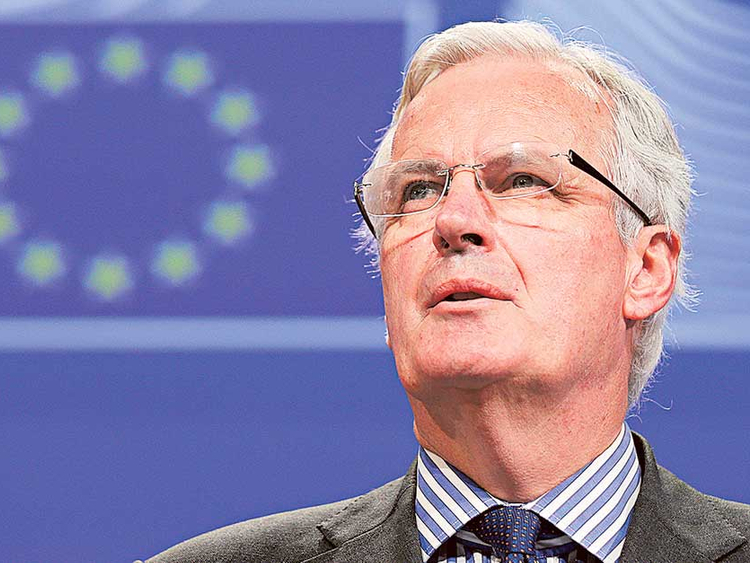
Brussels: A French politician who introduced a swathe of European financial regulation after the financial crisis was named on Wednesday to represent Brussels in negotiations on Britain’s exit from the European Union (EU), drawing a cool response in London.
European Commission President Jean-Claude Juncker selected Michel Barnier, a former EU commissioner and centre-right French foreign and agriculture minister, in a choice that may antagonise Britain’s Euro-sceptic Conservatives.
In London, a spokeswoman for Prime Minister Theresa May said Britain looked forward to working “with representatives from the member states, the Council and the Commission to ensure an orderly departure of the UK from the EU”.
But it did not mention Barnier by name. Initial British media reaction was hostile.
“Hard to think of a more anti-British figure. Declaration of war,” Tom Newton Dunn, political editor of the pro-Brexit Sun newspaper, said on Twitter.
London’s Evening Standard daily branded Barnier the “scourge of the City” — the financial district of the British capital.
However, a former British Europe minister, Denis MacShane of the pro-European opposition Labour Party, said Barnier was “pro-Brit but also pro-EU”, and had the experience to understand that key decisions on future ties would be taken in Berlin, Paris and other national capitals rather than by anyone in Brussels.
Barnier will take up his post on October 1, the EU executive said in a statement. He will report directly to Juncker and have the rank of a director-general of a Commission department, with all necessary resources at his disposal.
Barnier, 65, was a commissioner from 2010 to 2014, in charge of internal market and services. He was involved in reforms of financial services and in the establishment of a European banking union with a single supervisor for Eurozone banks.
Juncker said Barnier was a skilled negotiator with rich experience in major policy areas and an extensive network of contacts in the capitals of EU member states.
“I wanted an experienced politician for this difficult job,” Juncker said in the statement. “I am sure that he will live up to this new challenge and help us to develop a new partnership with the United Kingdom after it will have left the European Union.”
Soundings
May has said she does not expect to trigger the EU treaty’s Article 50 exit clause before the end of this year. She has taken soundings on initial visits to Berlin, Paris and Rome and spoken by telephone with the heads of EU institutions. But her government has yet to determine what kind of relationship it wants with the bloc after it withdraws.
Opinions among leading Conservatives range from a simple free trade agreement to as complete an access to the EU’s single market as possible, given the British electorate’s determination to control migration from EU countries. EU partners say freedom of movement of workers is a pivotal condition for market access.
It is also unclear who will lead the exit negotiations on the British side, although veteran Conservative Euro-sceptic David Davis, was appointed Secretary of State for Exiting the European Union in May’s cabinet.
Michael McKee, a financial services lawyer at DLA Piper in London, told Reuters that Barnier would have a good grasp of the technical and political issues associated with the single market and financial services.
“It does suggest to some degree that Juncker sees the single market and financial services as core elements of the negotiations, which is not a surprise,” McKee said.
The Commission statement did not say whether Juncker had consulted Britain or other EU member states before appointing Barnier. European Council President Donald Tusk, who chairs EU summits, had previously named Belgian EU official Didier Seeuws to oversee preparations for the Brexit negotiations.
It was not immediately clear what the relationship between Barnier and Seeuws would be.
Barnier presided over a frenzy of European financial rule making, not all welcomed by Britain.
More than 40 sets of rules were rushed onto the statute book, most based on global responses to the financial crisis. A hawkish European Parliament also insisted on caps for bankers’ bonuses, a reform Britain failed to stop.
The Frenchman, who co-organised the 1992 Winter Olympics in his home region of Albertville and was a close ally of former Gaullist President Jacques Chirac, prided himself on working mostly in consensus with the City, London’s financial centre. He worked hard to improve his spoken English on the job.
Barnier was succeeded in Brussels by Briton Jonathan Hill as commissioner in charge of financial service. Hill, who set about building a European capital markets union while trying to give the financial sector a breather from fresh regulation, resigned after Britain voted to leave the EU in a June 23 referendum.













